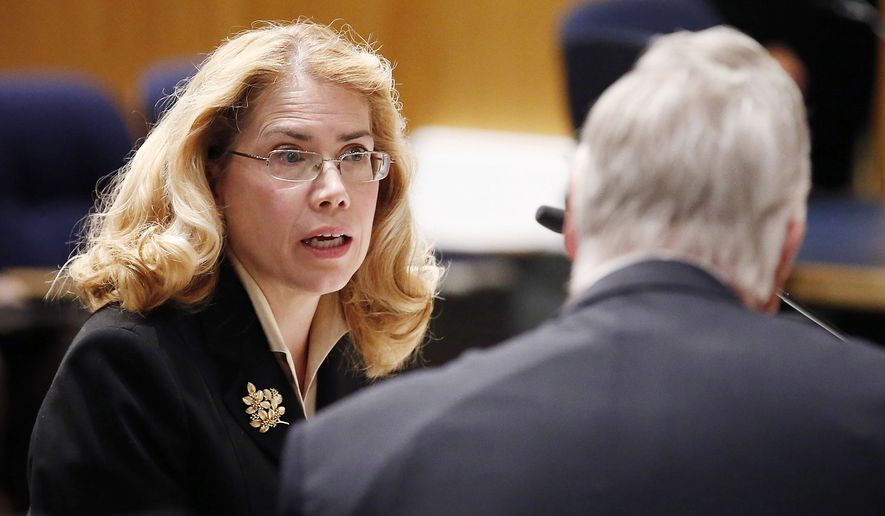The Phoenix VA remains mired in problems, a whistleblower told Congress on Monday, more than a year after she ignited a national scandal by revealing that some 40 veterans died while stuck on secret waitlists at the health care facility.
Dr. Katherine Mitchell, a former emergency room physician, said she would not seek care at her former hospital, which she said still fails to adequately train triage nurses to determine which patients need to be seen immediately.
And while the clinic is no longer supposed to maintain secret waitlists, wait times at the hospital are still a major problem, Nicole Morris told a field hearing of the Senate Committee on Veterans’ Affairs in Gilbert, Arizona.
Ms. Morris went to the VA’s emergency room early one morning and sat there until late at night, then had to go home and return the next day. She said staff did not check in on her or give her updates about her wait time.
“At the end of that experience, I did not want to go back to VA,” the Navy veteran said. “I’m a single mother and a student. I don’t have any other insurance. It was very disheartening and very stressful to get an appointment.”
A top Veterans Affairs official said the department is a victim of its own success. Dr. David Shulkin, VA’s undersecretary for health, said the agency has improved care in the wake of the scandal, but that means more veterans are opting to use the VA rather than pay for their own private sector care, which means wait times at the VA will have to grow.
Emergency room staff also have an ethical obligation to give priority to patients with serious conditions, which would inevitably lead to wait times for patients who feel very ill but are a lower priority.
Dr. Mitchell said the nurses who make those decisions need better training to recognize symptoms of dangerous conditions. She said the current training on what’s known as the Emergency Severity Index is not adequate.
“There’s no standardized triage training, and it’s the luck of the draw if you have a triage nurse who knows what they’re doing,” Dr. Mitchell said. “The nurses who impeded the care I did, who retaliated against me, they’re still here, and I don’t trust them not to impede my care.”
Dr. Mitchell also said the hospital continues to face a culture of retaliation against anyone who brings problems to the attention of the hospital. She said a memo from VA leaders outlined harsh penalties for anyone who retaliates against employees who report problems, and also said establishing an independent board to conduct performance reviews would help solve the issue.
Sen. John McCain, Arizona Republican, said he was frustrated that only one administrative employee at the Phoenix hospital had been fired for the waitlist scandal and whistleblower retaliation.
Dr. Shulkin said that VA leaders “hear that frustration loud and clear” and are trying to speed up decisions without waiting for outside investigations to be complete. But he also said the VA will not be pressured by news reports.
“It’s very important to understand that if people aren’t following our values, they don’t belong in the VA,” he told the committee.
After the hearing, Mr. McCain and his fellow Arizona Sen. Jeff Flake continued to push for more accountability in a letter to VA Secretary Robert McDonald, calling on him to fire a senior manager at the Phoenix hospital for whistleblower retaliation. Despite an Office of Accountability Review investigation, the senior manager remains in his position, Mr. McCain and Mr. Flake wrote.
“Retaliation against whistleblowers undermines confidence in VA employees, veterans, and their families that change has occurred at the VA,” the two senators wrote. “Such actions run counter to the VA’s mission to care for our veterans.”
• Anjali Shastry can be reached at ashastry@washingtontimes.com.




Please read our comment policy before commenting.